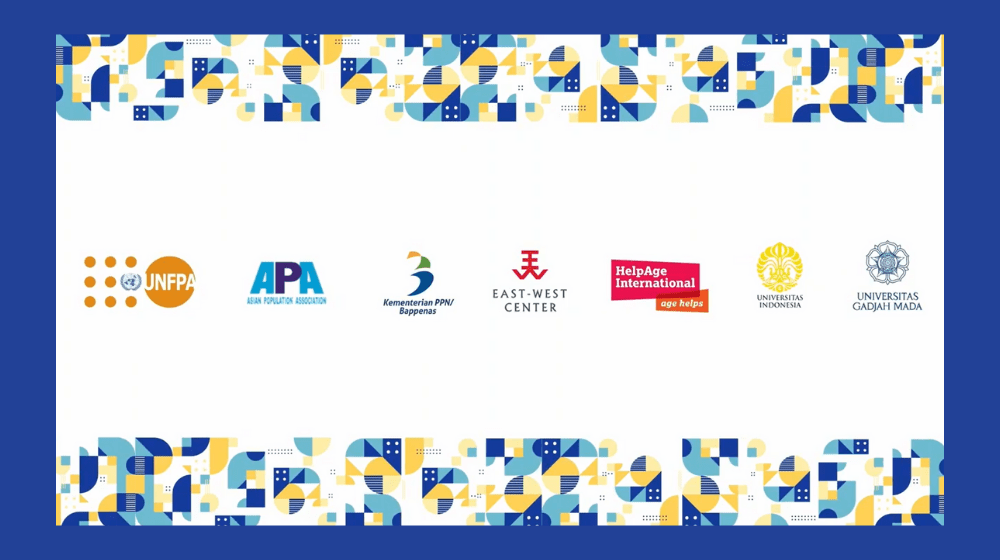For over a decade, academics, national officers, experts, and policy planners across Asia have become acquainted with the methodology of National Transfer Accounts, which explores the interlinkages between a country’s population age structures and its economic growth. The tool provides insights on how populations at each age produce, consume, save and share resources, which is crucial for nations to address economic inequality.
In all modern societies, children are fully dependent on their parents, the government or social welfare systems, while adults are generally able to work, earn an income, pay taxes, and support both children and the elderly. After retirement, a person’s spending depends on their savings and available social welfare systems.
Understanding National Transfer Accounts and using this methodology in policy planning can better inform governments to promote economic growth and respond to the social protection needs of a rapidly ageing population. Yet, while several countries have used the tool to support policy development, some countries in the region have limited experience in applying its measures for policy planning.
From 5-7 October 2021, the UNFPA Asia and the Pacific Regional Office hosted a virtual three-day meeting bringing together multiple stakeholders from across 20 countries in the region to share updates and learn from their progress in using National Transfer Accounts.
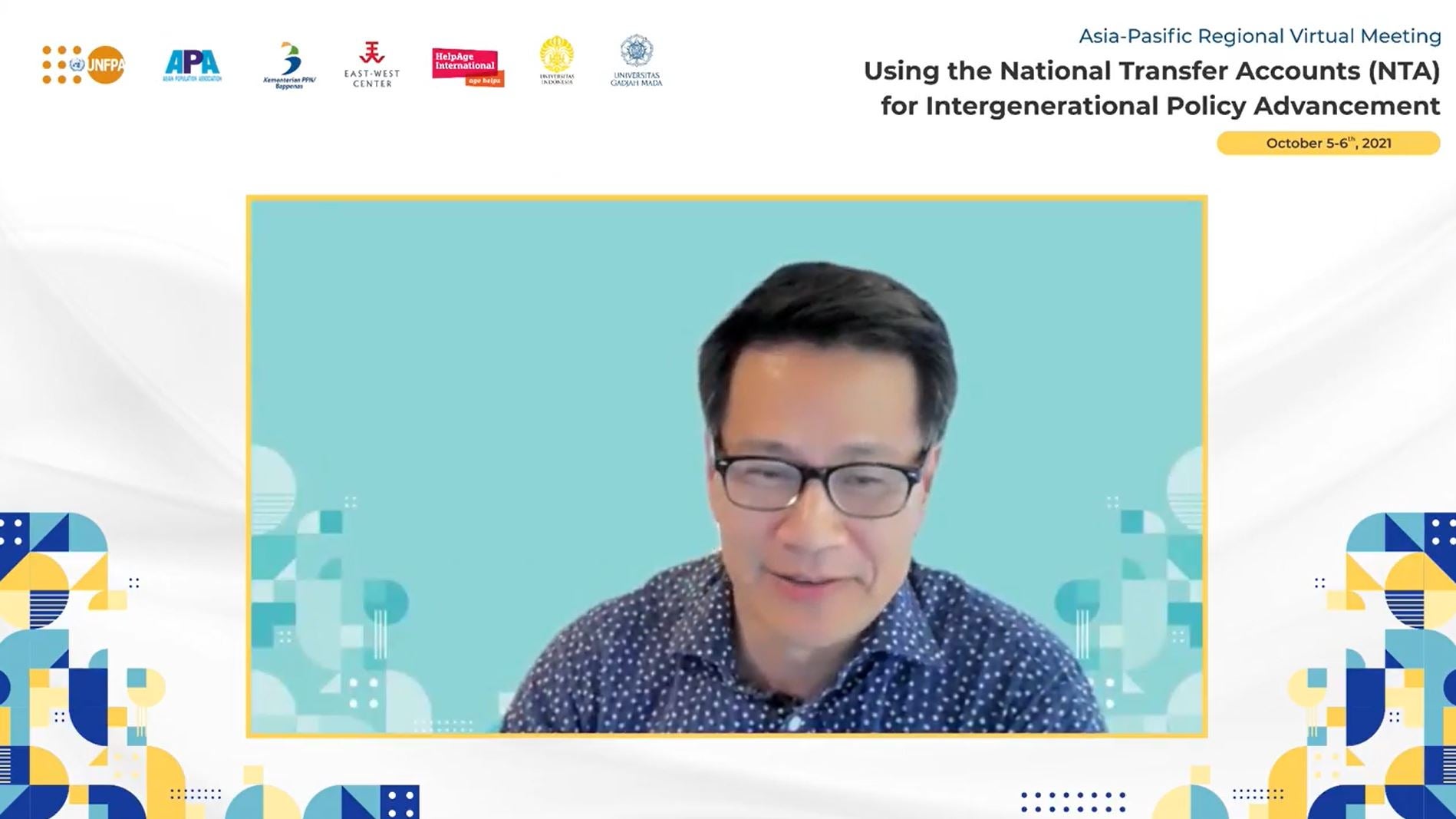
Stressing on the importance of National Transfer Accounts in policy planning, Sang-Hyop Lee of the East-West Centre and University of Hawaii said, “We need to establish a process for monitoring impacts of demographic change on key economic indicators. This is National Transfer Accounts. We need to also increase awareness among policy-makers and the public, and develop financial sectors, build regional cooperation and integration, and make good population policy”.
On the last day, high-level policymakers joined the discussions, including Arkhom Termpittayapaisith, Minister of Finance of Thailand; Pungky Sumadi, Deputy Minister of National Development Planning for Population and Labour of Indonesia; Suahasil Nazara, Vice Minister of Finance of Indonesia; and Fathimath Niuma, Deputy Minister for National Planning, Housing, and Infrastructure of Maldives.
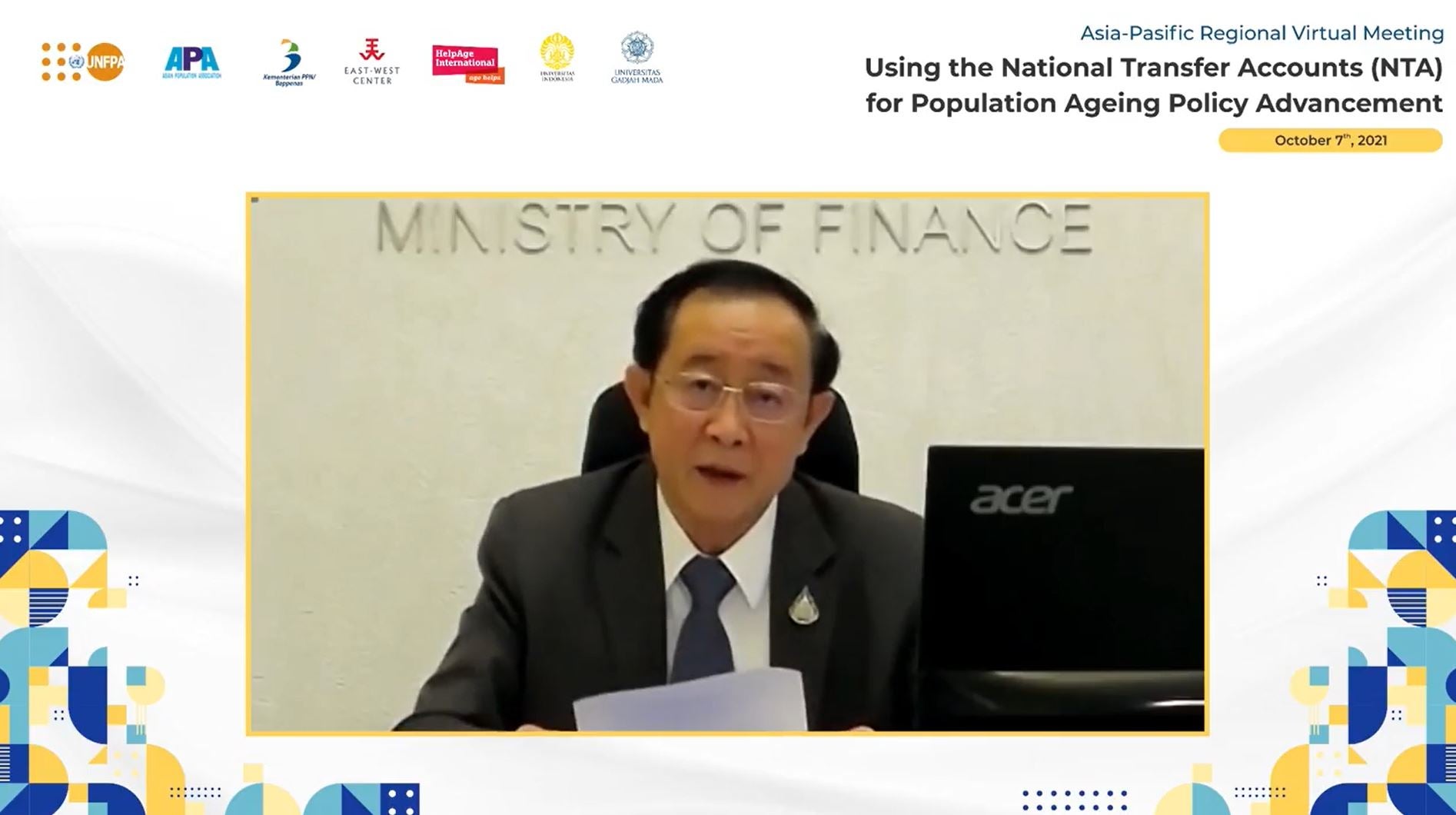
“As a global phenomenon, an ageing society is a challenging issue experienced by many countries around the world. Its implications have brought challenges for policy makers”, said Minister Termpittayapaisith, sharing experiences on how the Government of Thailand is working towards addressing these challenges particularly amidst the COVID-19 pandemic. He outlined the Thai pension system and introduced the concept of the National Pension Fund of Thailand.
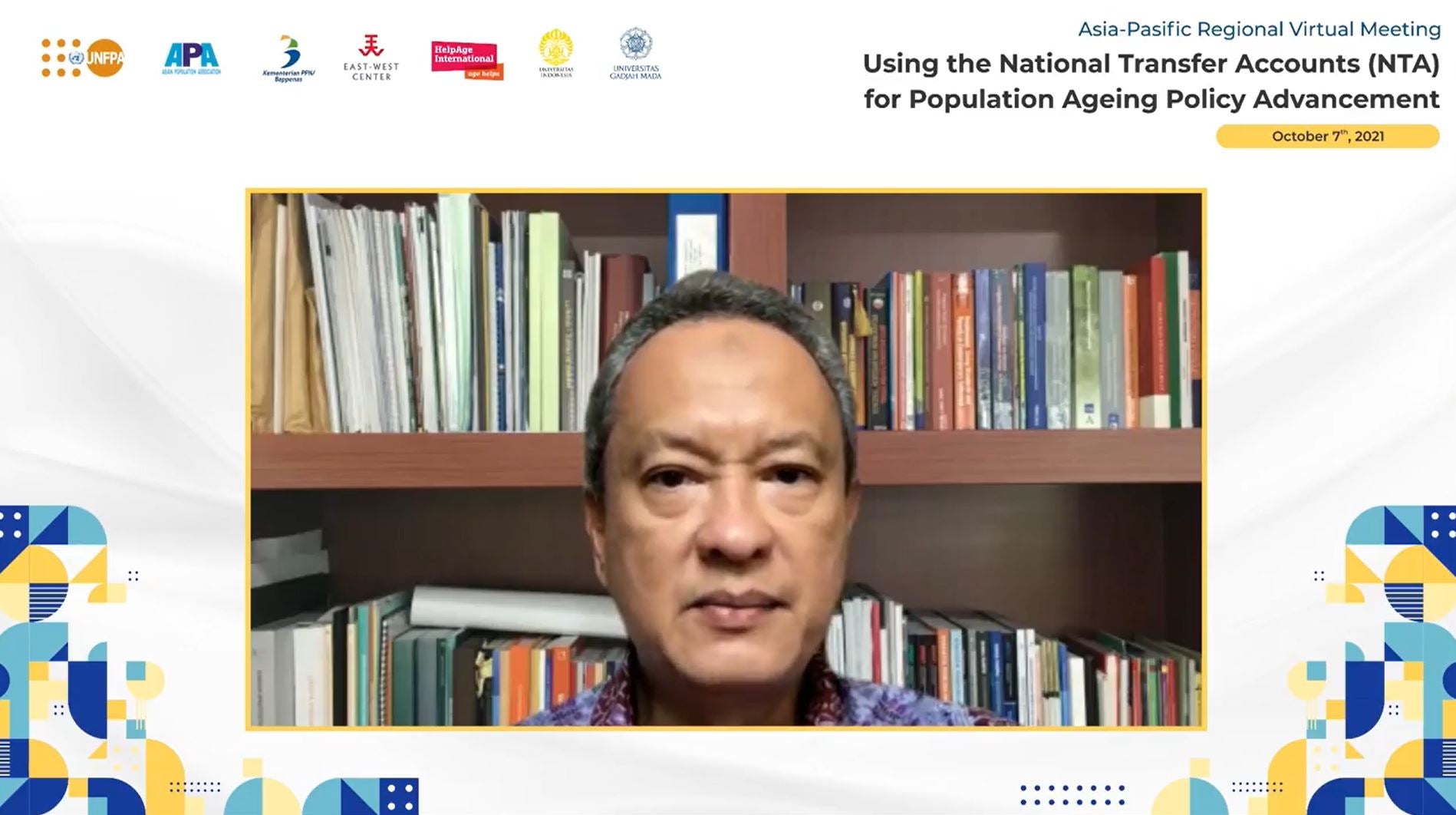
Adding to the discussion, Deputy Minister Sumadi said, “Unfortunately, pension cover is still low in Asia, including in Indonesia. The poor and vulnerable older people continue to work in old age, primarily in the ultra-micro informal sector or rely on transfers from family members, community, and the government.This condition calls for a reform in the social protection programmes, especially those directed towards the elderly. First, social protection needs to be more inclusive towards older people. Secondly, social protection programmes need to apply a life-cycle approach.”
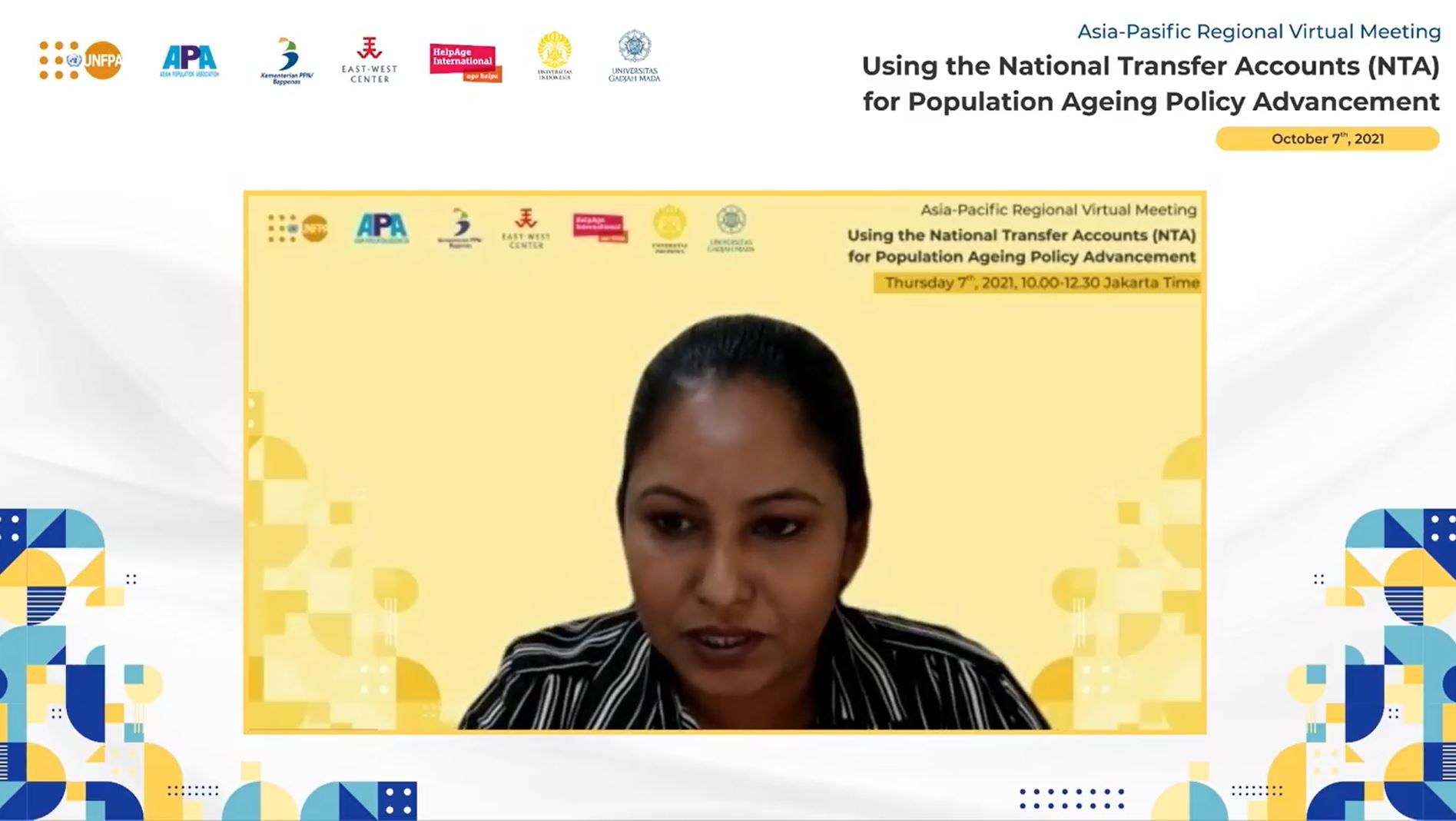
Contributing to the panel discussion, Deputy Minister Niuma shared experiences from the Maldives, particularly on how COVID-19 has emphaisized challenges in reaching people scattered geographically across the nation's many atolls: "As a government and community, we have to think about the relevant policies in health, social security, and how we are going to address population ageing in the next decades to come".
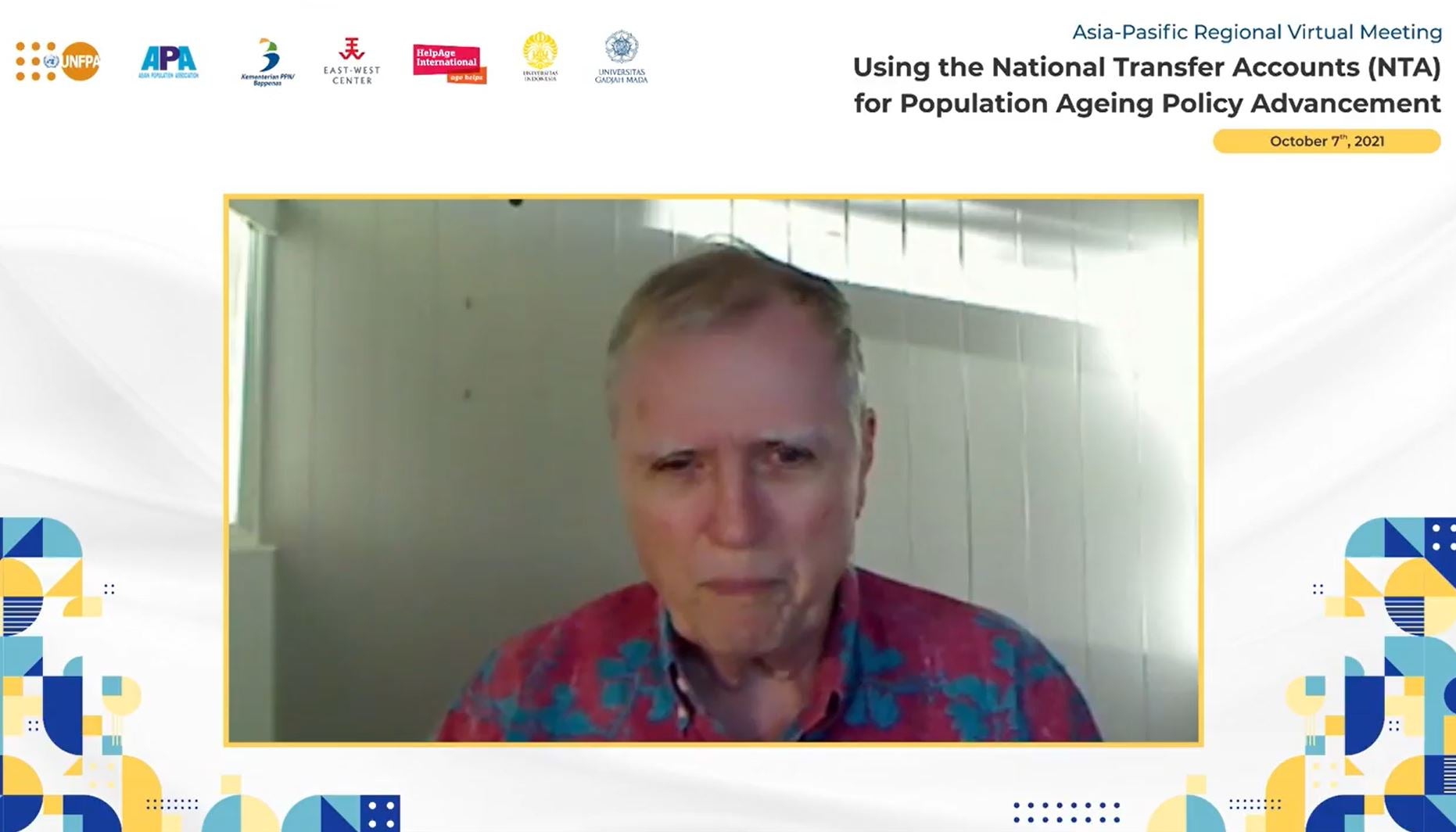
The importance of the life-cycle approach in addressing population ageing was also highlighted during the keynote address on the generational perspective on ageing and policy in Asia by Andrew Mason from the East-West Centre and University of Hawaii. He noted, “The young and old do not produce enough through their labour to pay for themselves or fund their own consumption. This gives rise to many issues. Minimizing the costs of ageing will require effective public policy that raises productivity among all people, especially women.”
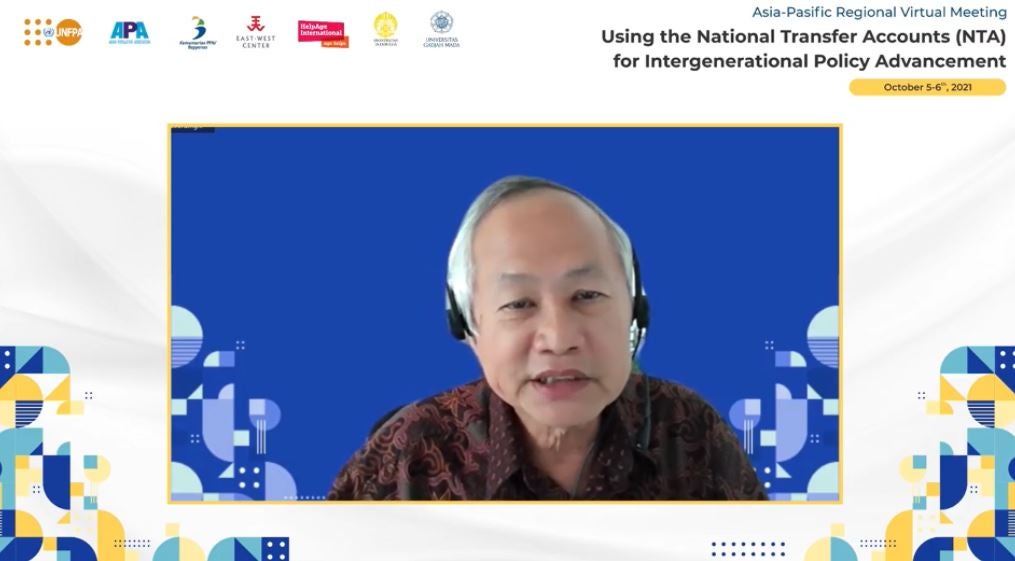
Aris Ananta from the Asian Population Association. Speaking at the event also spoke of the importance of understanding the interlinkages between consumption and production. He said, “National Transfer Accounts discusses the economic life-cycle of the population. It examines three cycles, starting with the cycle of consumption with production, followed by the cycle of producing more than consumption, and then the cycle of consumption without production”.
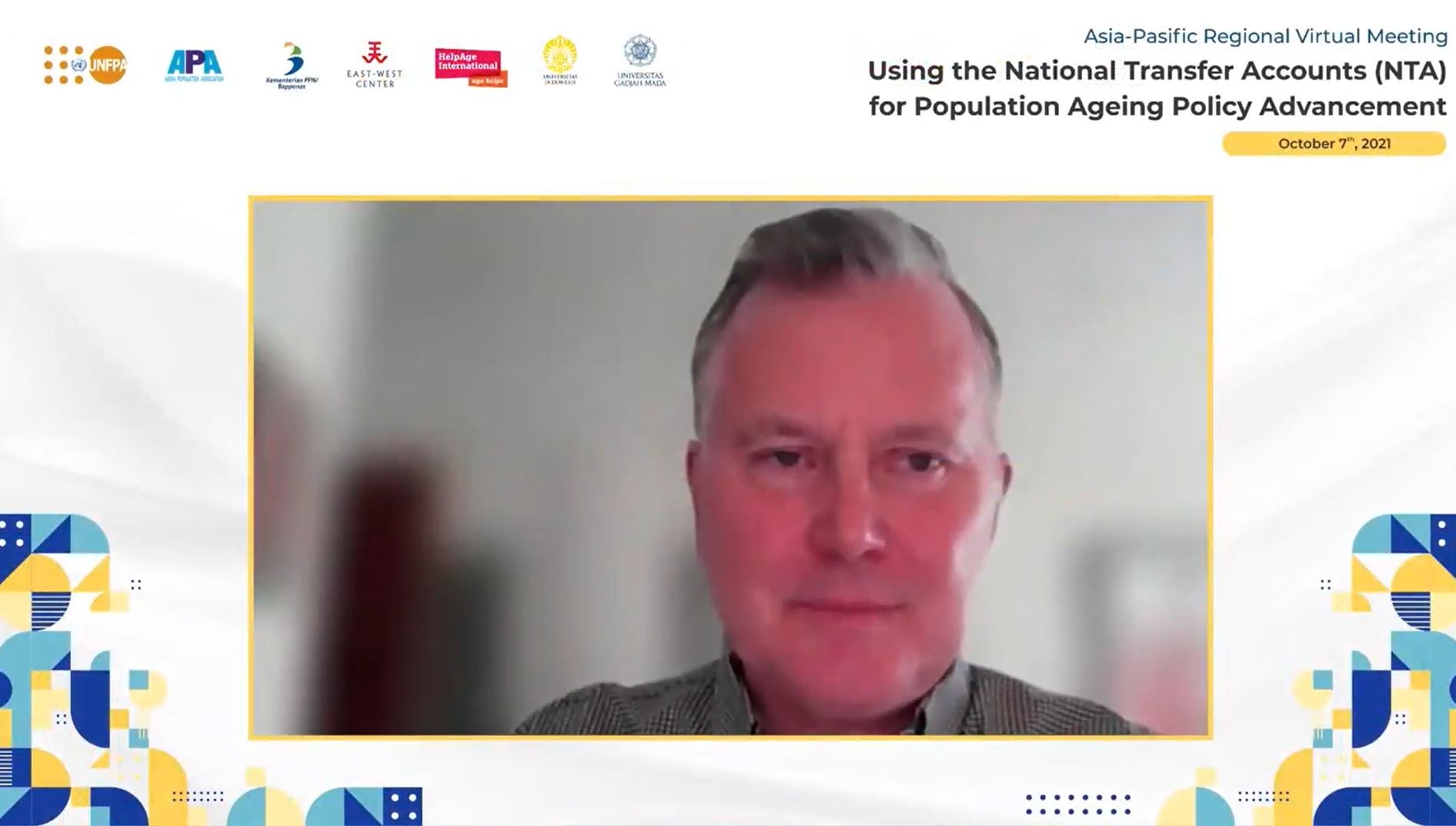
Urging countries in Asia-Pacific to maximize demographic opportunities, UNFPA Asia-Pacific Regional Director, Bjorn Andersson, said, “We are all aware of the incredible diversity in demographic transition among countries in our region - with some countries just entering the demographic window of opportunity with declining fertility and mortality. Our commitment to the 2030 Agenda requires us to plan for the effects of the demographic transition that will unfold during this decade of action”.
The regional meetings were attended by over 150 people and were hosted by the UNFPA Asia-Pacific Regional Office in partnership with the co-organizers: the Ministry of National Development Planning for Population and Labor of Indonesia, the East-West Center, HelpAge International, Universitas Indonesia, Universitas Gadjah Mada and the Asia Population Association. The full recordings of the three-day sessions can be viewed here.
This virtual meeting was a continuation of three regional workshops on the National Transfer Accounts in Asia previously hosted by the UNFPA Asia and the Pacific Regional Office together with HelpAge International and East-West Centre in 2014 (Bangkok), 2015 (Pattaya) and 2017 (Chiang Mai).
--

